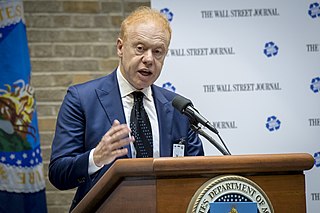A Quote by Wendell Berry
If, on the other hand, conservationists are willing to insist on having the best food, produced in the best way, as close to their homes as possible, and if they are willing to learn to judge the quality of food and food production, then they are going to give economic support to an entirely different kind of land use in an entirely different landscape. This landscape will have a higher ratio of caretakers to acres, of care to use. It will be at once more domestic and more wild than the industrial landscape.
Quote Topics
Acres
Best
Best Food
Best Way
Care
Caretakers
Close
Different
Different Kind
Domestic
Economic
Entirely
Food
Food Production
Give
Going
Hand
Having
Higher
Homes
Industrial
Insist
Judge
Kind
Land
Land Use
Landscape
Learn
More
Once
Once More
Other
Possible
Produced
Production
Quality
Ratio
Support
Than
Then
Use
Way
Wild
Will
Willing
Willing To Learn
Related Quotes
The English landscape at its finest - such as I saw this morning - possesses a quality that the landscapes of other nations, however more superficially dramatic, inevitably fail to possess. It is, I believe, a quality that will mark out the English landscape to any objective observer as the most deeply satisfying in the world, and this quality is probably best summed up by the term 'greatness.'
Food production has affected the environment more than any other activity humans have engaged in. Humanity devotes more land to food production than anything else - roughly a third of the surface area of the earth, much of which was once forest but has been converted by humans into farms or grazing lands.
It is vitally important that we can continue to say, with absolute conviction, that organic farming delivers the highest quality, best-tasting food, produced without artificial chemicals or genetic modification, and with respect for animal welfare and the environment, while helping to maintain the landscape and rural communities.
Many of the enchanted things in the book are lamps, carpets, sofas, gems, brass rings. It is a rather different landscape than the fairy tale landscape of the West. Though we have interiors and palaces, we don't have bustling cities, and there isn't the emphasis on the artisan making things. The ambiance from which they were written was an entirely different one. The Arabian Nights comes out of a huge world of markets and trade. Cairo, Basra, Damascus: trades and skills.
What is … important is that we — number one: Learn to live with each other. Number two: try to bring out the best in each other. The best from the best, and the best from those who, perhaps, might not have the same endowment. And so this bespeaks an entirely different philosophy — a different way of life — a different kind of relationship — where the object is not to put down the other, but to raise up the other.
The first supermarket supposedly appeared on the American landscape in 1946. That is not very long ago. Until then, where was all the food? Dear folks, the food was in homes, gardens, local fields, and forests. It was near kitchens, near tables, near bedsides. It was in the pantry, the cellar, the backyard.
They will tell you that the Americans who sleep in the streets and beg for food got there because they’re all lazy or weak of spirit. That the inner-city children who are trapped in dilapidated schools can’t learn and won’t learn and so we should just give up on them entirely. That the innocent people being slaughtered and expelled from their homes half a world away are somebody else’s problem to take care of.
When it does get below freezing and there is - it's cold enough for ice to form, then that changes the whole landscape, and it makes the landscape a different landscape to the one that I worked with previously. And I want to understand that. But the big tension of the ice works is that they're often made when it's cold enough to freeze one piece of ice to another.






































